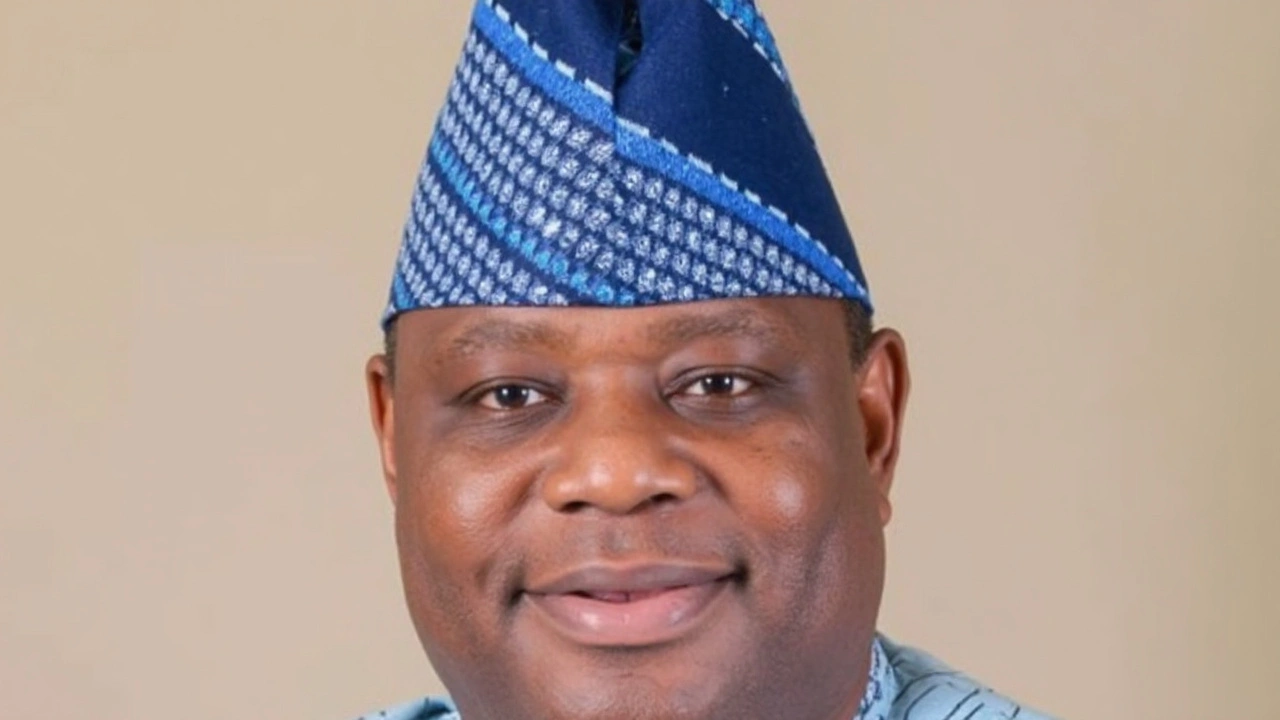PDP Dominates Peaceful Osun State Elections Amid APC Withdrawal

Uncontested Victory for the Peoples Democratic Party
The local government elections in Osun State, held on February 22, 2025, wrapped up with a decisive triumph for the Peoples Democratic Party (PDP), which claimed victory in all available positions. This includes securing all 30 chairmanship and 332 councillorship seats across the state. The remarkable result was announced by the Osun State Independent Electoral Commission (OSSIEC) late on the same day, marking a significant political moment for the state.
One of the key factors contributing to the PDP's unchallenged success was the withdrawal of the main opposition party, the All Progressives Congress (APC), before the elections commenced. The APC cited a court ruling that reinstated its previously dismissed officials, which complicated their campaign logistics and led them to step back from the electoral contest. This decision essentially cleared the way for the PDP to take all seats unopposed.

Elections Amid Challenges
The OSSIEC Chairman, Hashim Abioye, expressed satisfaction with the conduct of the elections, noting that they adhered to constitutional provisions and existing electoral laws. Nevertheless, the process was not without its hitches. One significant logistical challenge was the police action to seal the OSSIEC headquarters, which impeded the timely accreditation of media personnel. This created a ripple effect that caused delays in the dissemination of information to the public.
Facing these setbacks, OSSIEC engaged with stakeholders and maintained their commitment to following the legal framework, ensuring that the process remained transparent and unhindered by external disruptions. Abioye acknowledged the issues related to media accreditation, explaining that these were largely outside the commission's control given the involvement of security agencies.
Despite these hurdles, the election day proceeded without major incidents, embodying a peaceful democratic exercise. With the PDP's comprehensive victories announced, the party has reinforced its influence in the region, laying a strong foundation for its future governance strategies in Osun State. The situation provides an intriguing pivot point for local politics and possibly even national implications as parties assess their positions in regions experiencing significant political shifts.
18 Comments
Alex Soete
A clean sweep like this shows the power of organized grassroots work. The PDP’s full‑house win can motivate volunteers everywhere, proving that a united front really moves the needle!
Cara McKinzie
Wow, what a boring circus, lol. The APC just bailed because they can’t handle the heat, and now the PDP rides the kiddie‑pool of democrcacy.
Joseph Conlon
The narrative that this election was a seamless triumph masks a deeper erosion of competitive politics.
When the main opposition retreats, the victorious party inherits not only seats but also the vacuum left by dissent.
One could argue that the very legitimacy of the result is compromised the moment voters are denied a genuine choice.
The court ruling that forced the APC to withdraw highlights how judiciary interventions can reshape electoral landscapes overnight.
Moreover, the police sealing of the OSSIEC headquarters raises concerns about transparency that go beyond mere logistical hiccups.
Media accreditation delays may appear trivial, yet they constrain public scrutiny at a critical juncture.
In regions where political patronage runs deep, such unopposed victories often translate into unchecked power consolidation.
This consolidation threatens the principle of accountability that underpins any healthy democracy.
Even if the PDP intends to govern responsibly, the lack of opposition feedback creates a blind spot in policy formulation.
Citizens might find it harder to voice grievances when a single party dominates every council seat.
Historically, Nigerian states that have experienced monopolistic local governments have struggled with corruption spikes.
The Osun experience could therefore serve as a cautionary tale rather than a celebration of party efficiency.
It also forces rival parties to rethink their legal strategies, possibly opting for more aggressive courtroom battles over grassroots mobilization.
Such a shift could drain resources that would otherwise be spent on community projects or voter education.
Ultimately, the health of Osun’s democracy will be measured not by the number of seats held, but by how well the PDP engages with civil society in the absence of formal opposition.
Mohit Singh
The whole scenario feels like a stale power grab, and anyone who calls this peace is just ignoring the silent dissent brewing beneath the surface.
Damian Liszkiewicz
Interesting how a procedural hiccup turned into a headline, isn’t it? 🤔 When the APC steps out, the PDP gets a free ride, but that doesn’t guarantee good governance. 🌟 Let’s hope the new council members remember they’re accountable to the people, not just the party.
Angela Arribas
The article correctly notes the OSSIEC’s effort, yet it glosses over the procedural flaws. Precise language matters; “uncontested” doesn’t equal “unquestioned”. :)
Sienna Ficken
Oh great, another political clean‑sweep. Because we all know a monopoly of power always leads to brilliant outcomes. 🙄
Zac Death
Seeing the PDP take every seat is both impressive and a tad unsettling. On the one hand, it shows they’ve built a solid network across Osun, which could streamline decision‑making. On the other hand, without any opposition to challenge proposals, there’s a risk of echo‑chamber policies. Let’s keep an eye on how they translate this dominance into actual services for the locals.
Lizzie Fournier
This could be a chance for new initiatives at the grassroots level. If the council members truly listen, we might see improvements in local infrastructure and education.
JAN SAE
Wow!!! What a turn of events, the PDP swept the board, and the APC just vanished, leaving a political vacuum that the PDP eagerly filled; this could reshape local governance, for better or worse, only time will tell!!!
Steve Dunkerley
While the sentiment captures frustration, it’s worth noting that the court’s injunction was based on procedural legitimacy, which, in turn, affects the electoral timetable. The term “bail” might oversimplify the legal nuance, but the underlying point about opposition withdrawal remains valid.
Jasmine Hinds
Totally agree, the lack of opposition really is a red flag! 😊
Madison Neal
Indeed, procedural hiccups can erode public trust, especially when media access is restricted. Transparency mechanisms need reinforcement to ensure citizens stay informed.
John Crulz
Beyond volunteer morale, such a victory also pressures other parties to innovate their grassroots strategies, potentially raising the overall political engagement in the state.
Anita Drake
Inclusivity in governance hinges on more than just election outcomes; continuous community dialogue ensures that the council’s plans reflect diverse local needs.
Eduardo Lopez
The article’s neutral tone overlooks the deeper implications of a single party’s dominance, and glossing over the procedural flaws does a disservice to informed readers.
Nancy Perez de Lezama
While the observation is noted, the situation also presents an opportunity to assess the effectiveness of the democratic framework in practice.
Matt Heitz
Labeling a clean sweep as “great” ignores the reality that a unified council can implement policies without partisan gridlock, which benefits national stability.

Write a comment